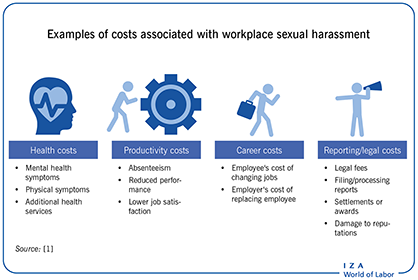Elevator pitch
Workplace sexual harassment is internationally condemned as sex discrimination and a violation of human rights, and more than 140 countries have enacted legislation prohibiting it. Sexual harassment increases absenteeism and turnover and lowers productivity and job satisfaction. Yet, it remains pervasive and underreported, as the #MeToo movement starkly revealed in October 2017. Standard workplace policies such as training and a complaints process have proven inadequate. Initiatives such as bans on confidential settlements and measures that support market incentives for deterrence may offer the most promise.

Key findings
Pros
Largely overlooked until the 1970s, sexual harassment in the workplace is now internationally condemned as a form of sex discrimination and a violation of human rights.
More than 140 countries have legislation prohibiting workplace sexual harassment.
Legislation varies by country and includes protection against workplace sexual harassment under both civil and criminal law.
Like workers at risk of injury or death, those at risk of sexual harassment receive a pay premium.
Bans on confidential settlements show promise by incentivizing firms to deter harassment in order to avoid reputational damage.
Cons
Sexual harassment is difficult to define, measure, and monitor, and estimates of prevalence range widely.
Sexual harassment is costly to its targets and to the organizations in which it occurs.
There is limited empirical evidence on the efficacy of legislative and workplace policies in reducing workplace sexual harassment.
Sexual harassment is underreported, which reduces the efficacy of legislation and workplace policies prohibiting it, as these policies depend on reporting to discourage harassment.
Costs to organizations may be too low for deterrence due to confidential settlements, low caps on damages awards, and insurer coverage of damages awards.